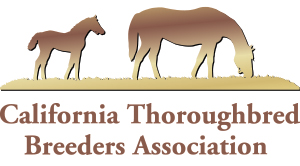By Bloodhorse.com
SACRAMENTO, Calif. (Feb. 26, 2014) — Two Internet poker bills have been introduced in the California Legislature for consideration this year, but neither includes the racing industry on the short list of entities eligible for licensing.
Josh Rubenstein, senior vice president for development of Del Mar Thoroughbred Club and spokesman for a coalition of racing interests, said the bills were disappointing in that regard but were by no means the final word.
“That’s the initial language. But the way bills start out and the way they finish, as we have seen, are usually quite different,” Rubenstein said by phone Feb. 26.
The measures were among hundreds introduced Feb. 21 in time to meet the submission deadline for 2014 legislation. Senate Bill 1366, authored by Sen. Lou Correa, and Assembly Bill 2291, by Assemblyman Reggie Jones-Sawyer, received their first readings Feb. 24.
Correa’s bill is a reintroduction of SB 678, which was submitted last year but never moved out of committee. The Jones-Sawyer legislation essentially reworks a bill advanced by Sen. Roderick Wright last year that never made it to the full senate.
These bills extend licensing privileges only to the state’s tribal casinos and independent poker-only card rooms. They are urgency bills, making them eligible for fast-track consideration this year but also require a two-thirds majority for passage. Unlike past bills, these are poker-only measures for players and do not allow for other forms of online casino-style gaming, such as video poker.
The bills have endorsements from different competing tribal casinos. Rubenstein said racing industry stakeholders have been meeting on how to respond.
“We’re very aware of what’s going on, and we have a strategy for how to make sure our voice is heard in California,” he said. “All we want is a place at the table.”
Central to racing’s argument is that it owns exclusivity in California for betting over the Internet through advance deposit wagering legislation. Rubenstein said racing would also make its appeal to lawmakers on the basis of its importance to the state economically.
Under both bills, licensees would be required to put up a $5 million fee, essentially a deposit against a 5% tax on gross gaming revenue. After that is depleted, they would be required to pay a 5% tax on revenues on a quarterly basis. Once approved by the California Gambling Control Commission, license holders could begin operations Jan. 1, 2015.
Wright, who in the past has insisted on racing’s inclusion in any consideration of licenses for Internet poker, is in no position to help this year.
The Democrat has relinquished his Senate governmental organization committee chairmanship—where racing legislation is instituted—and, he also took an indefinite leave of absence Feb. 25. He was convicted earlier of eight counts of fraud and perjury stemming from charges that he lied about living within his district, which includes Inglewood, when he ran for the seat in 2008.
After several failed attempts to get Internet poker approved in California, Rubenstein said chances of legislation reaching Gov. Jerry Brown’s desk are good this year. He pointed to the success of online poker in New Jersey and other recent developments among states as reasons why the timing appears right.
Long hurt by Indian gaming and tribal casino control of slot machines in the state, the struggling sport of horse racing sees Internet poker as an important new source of revenue.
“If racing’s not involved, it’s something we would have to oppose,” Rubenstein said. “But hopefully, it won’t get to that point.”


